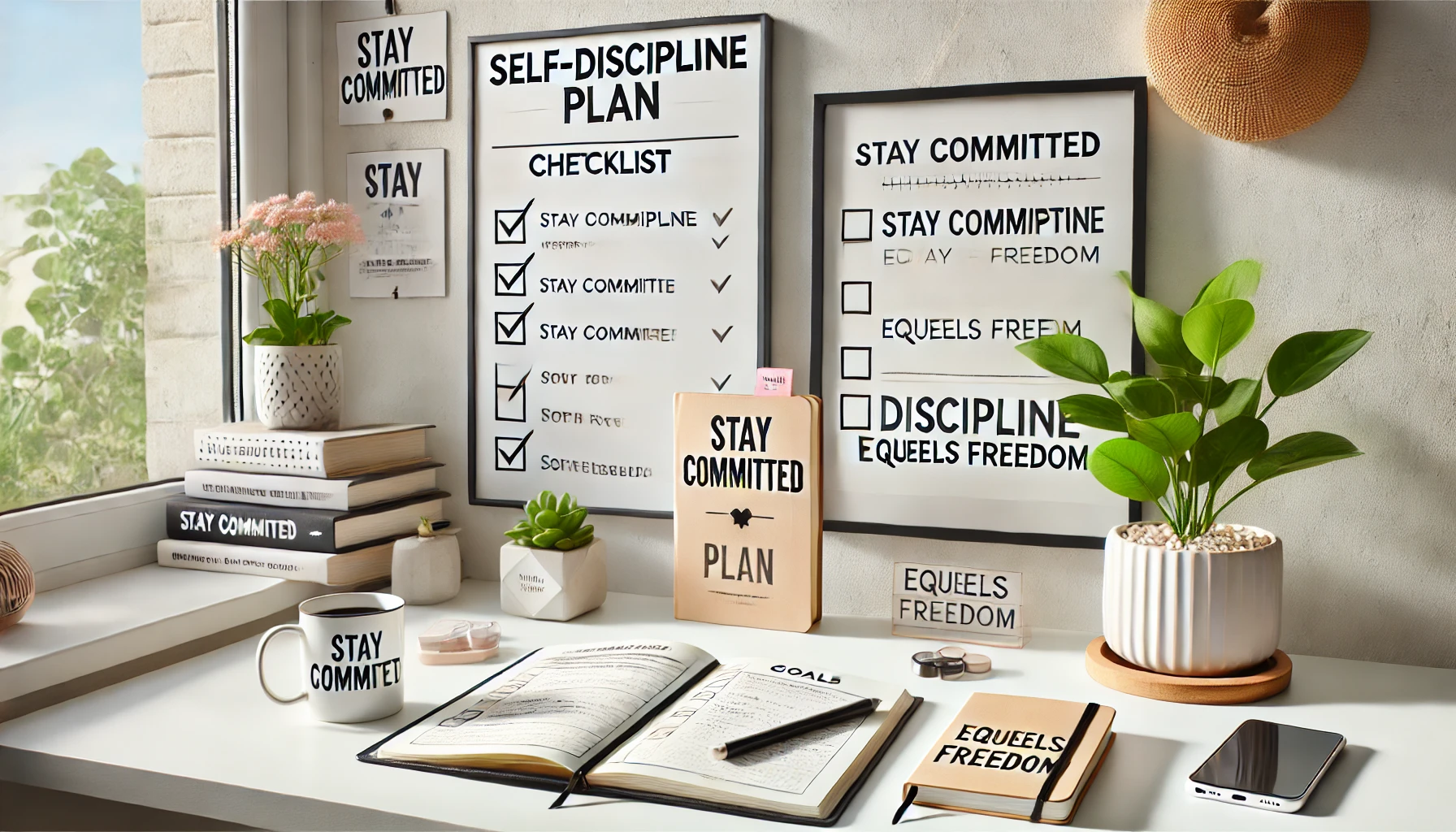Self-discipline has been one of the most important skills I’ve developed throughout my life—but it didn’t come easily. I still remember being a teenager, passionate about programming on my 8-bit personal computer, dreaming of working in technology. While still in high school, I was given an opportunity to substitute for a computer instructor in a neighboring town. It was a big step forward.
But I failed to wake up in time.
I missed the opportunity, and it hit me hard. That moment of frustration taught me something I never forgot: discipline isn’t about talent—it’s about showing up, even when it’s hard. That lesson became the foundation for everything I built later on.
If you’re ready to strengthen your self-discipline and take control of your goals, here’s how to start.
1. Understand the Power of Self-Discipline
Discipline is more reliable than motivation. It helps you:
- Stick to routines
- Overcome procrastination
- Stay committed to long-term goals
- Do what needs to be done—even when you don’t feel like it
Once you master discipline, success becomes repeatable.
2. Set Clear and Specific Goals
You need a clear target to stay focused. Make sure your goals are:
- Specific – Know exactly what you want
- Measurable – Track your progress
- Achievable – Start realistically
- Relevant – Aligned with your values
- Time-bound – Set deadlines
Clear goals give your discipline a direction.
3. Build a Simple Action Plan
A goal without a plan is just a wish. Break your goal into small, actionable steps.
- Define your main objective
- Break it into phases or milestones
- Assign daily or weekly tasks
Planning ahead eliminates hesitation and builds momentum.
4. Eliminate Distractions Around You
Discipline thrives in an environment that supports it.
- Turn off phone notifications
- Clear your workspace
- Designate a quiet zone for deep work
Make your surroundings work for you—not against you.
5. Start Small and Gain Traction
Big goals can feel overwhelming. Instead, begin with a small habit you can maintain.
- Read one page a day
- Wake up 10 minutes earlier
- Write down your daily priorities
Small wins create trust in yourself—and trust builds consistency.
6. Stick to a Routine
Routines make action automatic. Structure your day around what matters.
- Wake up and sleep at the same time
- Block time for work, exercise, and rest
- Use habit triggers (e.g., “after coffee, I journal for 10 minutes”)
Your routine becomes your discipline in action.
7. Use the 5-Second Rule to Beat Procrastination
If you hesitate, count 5-4-3-2-1, and take action before your brain makes excuses.
- Don’t overthink the workout—just start it
- Don’t debate writing that email—just open the draft
- Don’t scroll—begin the task you’ve been avoiding
Start before your comfort zone catches up.
8. Strengthen Your Willpower Daily
Willpower is like a muscle—it gets stronger with use.
- Make your bed each morning
- Swap soda for water
- Stick to small habits daily
The more you train it, the more resilient your self-discipline becomes.
9. Reward Your Progress
Discipline doesn’t mean being rigid. Reward reinforces consistency.
- Celebrate finishing a tough task with a break
- Reflect weekly on what you’ve accomplished
- Treat yourself when you hit a milestone
Rewards create a positive feedback loop.
10. Be Patient and Keep Going
Discipline takes time. You’ll slip up—but that’s part of the process.
- Don’t quit because of one bad day
- Focus on progress, not perfection
- Keep showing up, even when you don’t feel like it
Your future self is built by what you do when no one’s watching.
Final Thoughts
Self-discipline isn’t about being harsh—it’s about being committed.
Set clear goals.
Take small steps.
Build a routine.
Reward your progress.
Keep going.
That missed class when I was a teenager didn’t define me. But what I did after—learning to show up, to prepare, to take ownership of my growth—did. That’s how you build discipline. That’s how you build your future.

